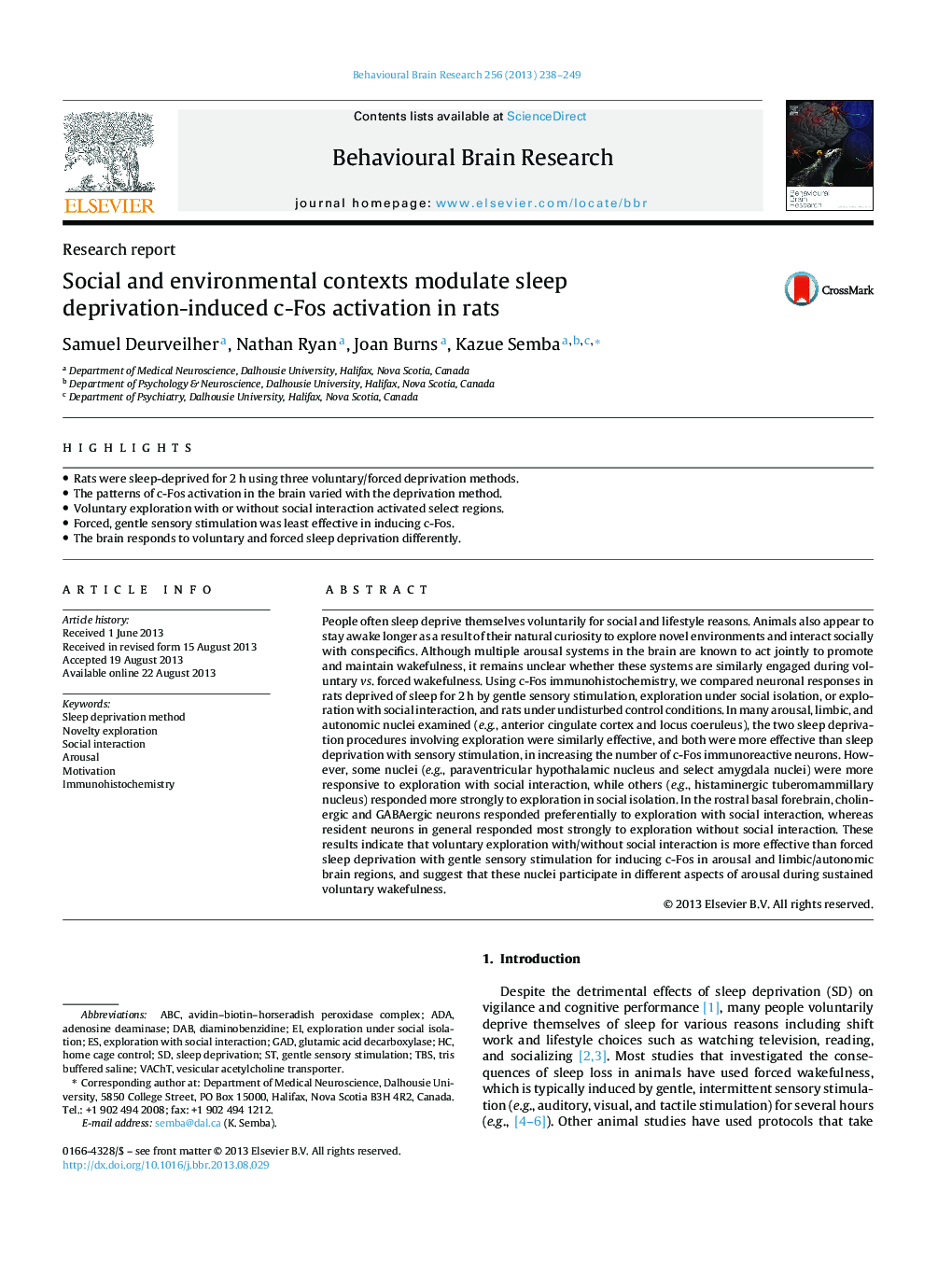| کد مقاله | کد نشریه | سال انتشار | مقاله انگلیسی | نسخه تمام متن |
|---|---|---|---|---|
| 6258787 | 1612976 | 2013 | 12 صفحه PDF | دانلود رایگان |

- Rats were sleep-deprived for 2Â h using three voluntary/forced deprivation methods.
- The patterns of c-Fos activation in the brain varied with the deprivation method.
- Voluntary exploration with or without social interaction activated select regions.
- Forced, gentle sensory stimulation was least effective in inducing c-Fos.
- The brain responds to voluntary and forced sleep deprivation differently.
People often sleep deprive themselves voluntarily for social and lifestyle reasons. Animals also appear to stay awake longer as a result of their natural curiosity to explore novel environments and interact socially with conspecifics. Although multiple arousal systems in the brain are known to act jointly to promote and maintain wakefulness, it remains unclear whether these systems are similarly engaged during voluntary vs. forced wakefulness. Using c-Fos immunohistochemistry, we compared neuronal responses in rats deprived of sleep for 2Â h by gentle sensory stimulation, exploration under social isolation, or exploration with social interaction, and rats under undisturbed control conditions. In many arousal, limbic, and autonomic nuclei examined (e.g., anterior cingulate cortex and locus coeruleus), the two sleep deprivation procedures involving exploration were similarly effective, and both were more effective than sleep deprivation with sensory stimulation, in increasing the number of c-Fos immunoreactive neurons. However, some nuclei (e.g., paraventricular hypothalamic nucleus and select amygdala nuclei) were more responsive to exploration with social interaction, while others (e.g., histaminergic tuberomammillary nucleus) responded more strongly to exploration in social isolation. In the rostral basal forebrain, cholinergic and GABAergic neurons responded preferentially to exploration with social interaction, whereas resident neurons in general responded most strongly to exploration without social interaction. These results indicate that voluntary exploration with/without social interaction is more effective than forced sleep deprivation with gentle sensory stimulation for inducing c-Fos in arousal and limbic/autonomic brain regions, and suggest that these nuclei participate in different aspects of arousal during sustained voluntary wakefulness.
Journal: Behavioural Brain Research - Volume 256, 1 November 2013, Pages 238-249